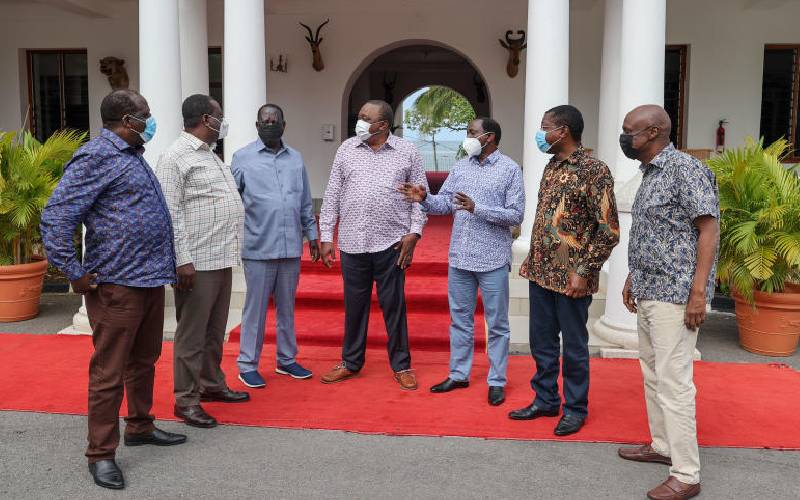×
The Standard e-Paper
Home To Bold Columnists

President Uhuru Kenyatta when he hosted ODM leader Raila Odinga and OKA Principals at State House Mombasa.[PSCU,Standard]
The biggest threat to Kenya is a takeover by people with neo-national socialist and Machiavellian tendencies who want to destroy the old order, systems and networks to rule. The result will be economic and social destabilisation.